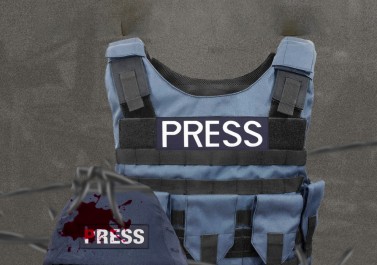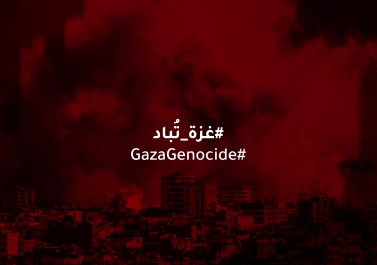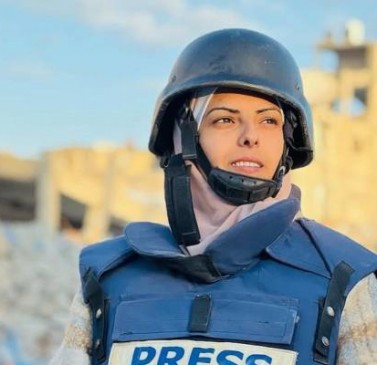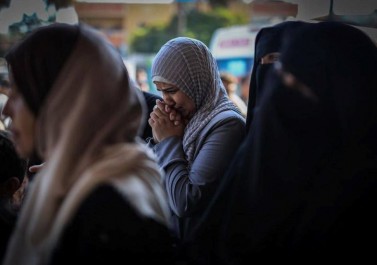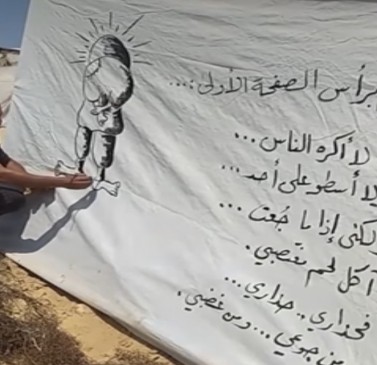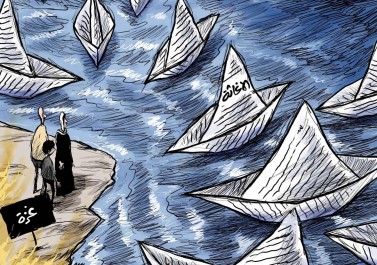:Gaza- Nawa Network- Filastiniyat
In Gaza, hunger is unlike anywhere else. But it becomes even harsher when the one suffering is a child who does not understand the meaning of war, does not grasp the concept of siege, and cannot comprehend why food is absent.
This is the reality of hundreds of mothers raising children with Down syndrome in the Gaza Strip, where it is not enough to be deprived of food, but also deprived of the ability to explain the shortage to a child who needs routine, stability, and special care.
The mothers say their children do not understand why everything suddenly changed, why meals stopped, and why water became scarce or medicine unavailable. Amid ongoing displacement, aid cuts, and food scarcity, hunger turns into a painful psychological and behavioral experience for these children, and a harsh double burden for mothers unable to explain or compensate.
Rawan Al-Madhoun, a displaced mother from northern Gaza, lives in a shelter school in Deir al-Balah with her son Hassan, who has Down syndrome.
Since the beginning of the displacement, she has noticed a significant change in Hassan’s behavior. She says, “He doesn’t understand what war means, but when he’s hungry, he starts screaming, getting angry, biting his hands, and banging his head against the wall.”
Hassan was used to a daily routine that helped him feel safe: regular meals, set bedtime, and medication on time. But the war completely destroyed this routine.
Rawan adds, “He keeps asking me why there’s no milk, where the rice is, and all I have is a broken heart.”
Rawan feels that the helplessness in front of her son’s hunger is worse than the hunger itself. “He’s not just hungry, he’s lost and doesn’t understand what’s happening. And I can’t explain to him or help him.”
Afnan Al-Khatib, the mother of six-year-old Lama who has Down syndrome, was displaced from her home in Gaza to a small tent in Khan Yunis.
She says that Lama does not understand why the meals she used to wait for every day have stopped, and why she has started crying for no clear reason.
“She used to be happy with her milk carton and waited to have breakfast at the same time every day. Now everything has disappeared. Every day she cries and asks me, ‘Mama, I was good, why is there no food?’” Afnan says with a broken voice.
Lama has begun showing emotional behaviors: tearing her belongings, screaming at night, and clinging excessively to her mother.
“She doesn’t leave me for a moment. She’s even afraid to sleep. Every day I keep making up stories to calm her down, but hunger is something she simply cannot understand.”
Dr. Emad Abu Youssef, a child psychologist, says that children with Down syndrome are greatly affected when their routine is disrupted, especially during hunger and displacement.
“They don’t understand what war or siege means, but they feel the change and translate hunger into behaviors like screaming, emotional outbursts, or excessive clinging to their mother.”
He advises mothers to use simple phrases to explain the situation, such as: There is no food today, but God willing, there will be tomorrow. He also emphasizes the importance of creating even a simple routine, like a bedtime story or a set mealtime, no matter how small.
“The child needs to feel that there is something constant, even if everything around them is falling apart,” the doctor adds.
In times of war, some scenes are captured on camera, while others pass in silence.
Mothers of children with Down syndrome in Gaza bear a double burden: hunger and the inability to explain it.
Between displacement tents and crowded schools, each mother tries to protect her child from a hunger they cannot understand and a reality they cannot change.
?It is painful enough to leave a child hungry; how much more so when they have no way to express it
This is not just a food crisis, but a crisis of understanding, of care, and of acknowledging a pain that cannot be understood.










